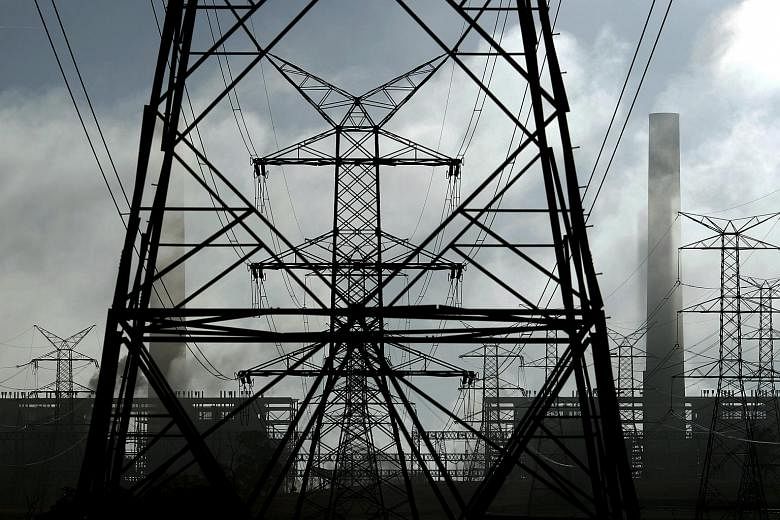Australia yesterday unveiled plans to reduce its carbon emissions by 26 to 28 per cent of 2005 levels by 2030 but the much-anticipated target set by Prime Minister Tony Abbott was criticised by scientists and environmental groups as inadequate to stop global warming.
Mr Abbott, a conservative who is seen as a climate change sceptic, insisted the target was responsible and would not harm the economy.
He said it was "fairly and squarely" in the middle of other targets set by comparable economies ahead of a December UN climate change conference in Paris. The United Nations gathering is meant to agree on a new global pact to limit sea level rise and increasingly extreme weather events.
"We are not leading, but we are certainly not lagging," Mr Abbott said. "It's environmentally responsible because it's more than comparable with what other countries are doing… The last thing we want to do is to strengthen the environment and damage the economy."
Analysts criticised the target, saying it was well below average cuts by developed nations of about 36 per cent by 2025. Australia, one of the world's top coal exporters, is also one of the highest emitters of carbon dioxide per capita.
-
What other countries are doing
-
Nearly 200 nations will announce pledges to curb or cut carbon emissions as part of a new climate change pact expected to be agreed on at a UN meeting in Paris later this year. These are some of the pledges so far:
• China: Carbon emissions to peak around 2030 or earlier; emissions per unit of gross domestic product to be cut by 60 to 65 per cent from 2005 levels; will increase the share of non-fossil fuels in primary energy consumption to around 20 per cent by 2030
• US: To cut emissions by 26 to 28 per cent from 2005 levels by 2025
• New Zealand: 30 per cent cut from 2005 levels by 2030
• Japan: 26 per cent cut from 2013 levels by 2030
• European Union: 40 per cent cut from 1990 levels by 2030
• Singapore: Reduce emissions intensity (the amount of greenhouse gases emitted for each dollar of gross domestic product) by 36 per cent from 2005 levels by 2030.
SOURCE: UNFCCC
Professor Steven Sherwood, a climate change expert at the University of New South Wales, said Mr Abbott's target was far too low and would damage Australia's international reputation. "Though it could have been worse, a 26 per cent target is about half of what is really needed, and is weak enough to reinforce Australia's new reputation as the world's foot-dragger," he said in comments published by the Australian Science Media Centre.
"Global warming poses a much more serious risk to our future economy than conservation or alternative energy would, so that excuse makes absolutely no sense."
Associate Professor Frank Jotzo of Australian National University said the target fell far short of the cuts needed to achieve the world community's commitment to restrict global warming to 2 deg C from pre-industrial levels. He said Australia would continue to be the highest per-capita carbon emitter among major economies.
Following his election victory in 2013, Mr Abbott abolished Labor's controversial tax on carbon emissions and instead introduced a "direct action" scheme to pay polluters to reduce emissions. But the scheme has been roundly criticised as costly and inefficient.
The opposition accused Mr Abbott of holding "flat earth views", saying the target would take the country backwards.
Business groups, though, said the target was realistic. "It's really important that Australia sets targets that it can actually meet," the head of the Australian Chamber of Commerce and Industry, Ms Kate Carnell, told ABC Radio.
The government has also faced questions over how it proposes to meet its climate goals. The ruling coalition says it will rely on its direct action scheme, as well as new vehicle emissions standards and emerging technologies such as batteries which store solar power.
"Diplomatically, the Abbott government has done the bare minimum... to avoid being a climate pariah at the Paris summit," Melbourne University research fellow Cathy Alexander wrote on The Conversation website yesterday.
"The domestic debate now turns to policy... Expect a stoush over whether (the coalition's plan) adds up to a 26 per cent cut."
Stoush is an Australian slang word for brawl.

